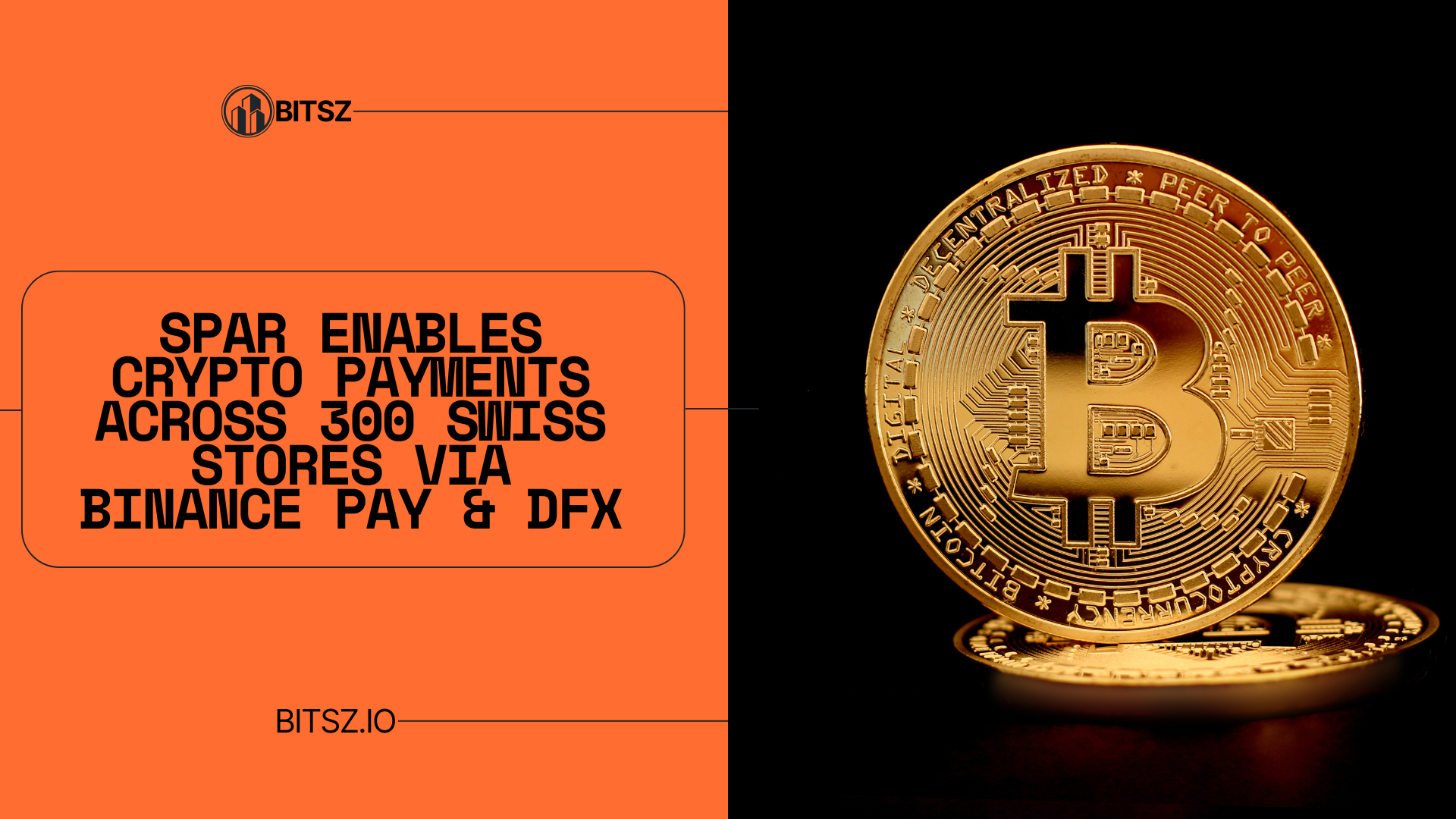
Switzerland’s SPAR supermarket chain is moving crypto payments from pilot to prime time. The grocer plans to enable stablecoin and cryptocurrency payments across 300 stores nationwide, partnering with Binance Pay and Swiss fintech DFX.swiss—a move it describes as the country’s first nationwide rollout of digital asset payments in retail. As of today, around 100 stores are already live, with the remainder to follow over the coming months, though the company hasn’t committed to a hard deadline.
How checkout will work
At the register, shoppers scan a QR code with the Binance Pay app, choose from 100+ supported cryptocurrencies and stablecoins, and pay. DFX.swiss handles the exchange and settlement in Swiss francs (CHF)—or in another currency upon request—so SPAR receives fiat while customers spend crypto. The company also frames the experience as “gas-free” for shoppers. Management says crypto payments can cut merchant commissions by up to two-thirds versus card rails, a meaningful margin lever in grocery.
From pilot to nationwide plan
SPAR’s national rollout follows a spring 2025 pilot in Zug, where a store accepted Bitcoin payments over the Lightning Network using DFX’s OpenCryptoPay solution. The pilot was reported by local and crypto trade press at the time and flagged on BTC Map.
Today’s announcement expands the scope: beyond Bitcoin/Lightning, the Binance Pay + DFX integration supports a wide set of coins and stablecoins, bringing a consumer-style wallet checkout to a mainstream grocer. A SPAR spokesperson and DFX confirmed the staged approach—live in ~100 stores now, with no fixed timeline for completing all locations. FinanceFeeds separately reported the initial 100-store milestone, underscoring that the expansion is already underway.
Why this matters for crypto payments in Switzerland
Switzerland already has an outsized footprint in crypto adoption. BTCmap shows thousands of merchants globally and over 1,000 Swiss businesses that accept Bitcoin, and cities like Lugano have enabled BTC and USDT for municipal payments. SPAR’s push shifts that adoption into everyday grocery, a category with high-frequency use that can normalize QR-based crypto checkout for non-enthusiasts.
Just as importantly, merchant economics could be compelling. If the two-thirds fee reduction versus card networks proves repeatable at scale, more Swiss retailers may experiment with crypto at the point of sale—especially if they can auto-convert to CHF and avoid price volatility on their balance sheets.
The plumbing: Binance Pay and DFX.swiss
- Binance Pay: a custodial, QR-based wallet experience that supports hundreds of crypto assets and instant user-to-merchant transfers within the Binance ecosystem. In SPAR’s flow, customers pay from Binance Pay; the app shows available tokens and stablecoins at checkout.
- DFX.swiss: acts as the payment interface and conversion layer. It receives the crypto, handles real-time FXinto CHF, and passes fiat settlement to SPAR—crucial for accounting and reconciliation in a large chain. The firm has previously supported Lightning pilots in Swiss retail and documents a growing store map.
This wallet + settlement pattern mirrors traditional payment service provider models, but with crypto-native rails on the front end and fiat certainty on the back end—one key reason large retailers are willing to test it.
What’s confirmed—and what isn’t
Confirmed:
- Scope & partners. SPAR is rolling out crypto and stablecoin payments to ~300 stores in Switzerland using Binance Pay and DFX.swiss; ~100 stores are already active.
- Checkout flow. QR scan in Binance Pay, auto-conversion to CHF, gas-free for the shopper.
- Economics (SPAR view). Management claims up to two-thirds fee savings versus cards.
Not confirmed:
- Exact completion date. No fixed timeline for when all 300 locations will be live.
- Asset list stability. While 100+ assets are currently supported via Binance Pay, supported tokens can change over time.
Industry context
SPAR isn’t the first Swiss merchant to offer crypto checkout—Worldline and Bitcoin Suisse have offered BTC/acceptance to Swiss merchants since 2021—but it’s rare to see a single national grocery chain commit to a coordinated, multi-hundred-store rollout. That scale makes SPAR’s program a bellwether for whether crypto can compete with cards and mobile wallets in low-margin, high-volume retail.
What shoppers should know
- You can pay with stablecoins or crypto at participating SPAR stores by scanning a QR code in Binance Pay. The store receives CHF—you don’t need to worry about exact change or volatility. Receipts reflect standard CHF totals.
- Availability varies today: ~100 stores are live, with more coming over the next few months. Look for in-store signage or ask at checkout.
- Earlier pilots in Zug used Bitcoin Lightning—that proof-of-concept helped pave the way for the current, broader rollout.
What to watch next
- Rollout pace. How quickly SPAR moves from 100 live to full national coverage—and whether the timeline firms up.
- Consumer uptake. Do crypto payments stay a novelty or earn repeat use? (Groceries are a perfect test: high frequency, low friction.)
- Copycats. If economics hold, watch for other Swiss retailers to pilot QR-based crypto checkout—potentially with different wallet providers or acquirers.
- Regulatory clarity. Switzerland is crypto-friendly, but stablecoin standards and KYC/AML expectations continue to evolve; merchant integrations will track that landscape.